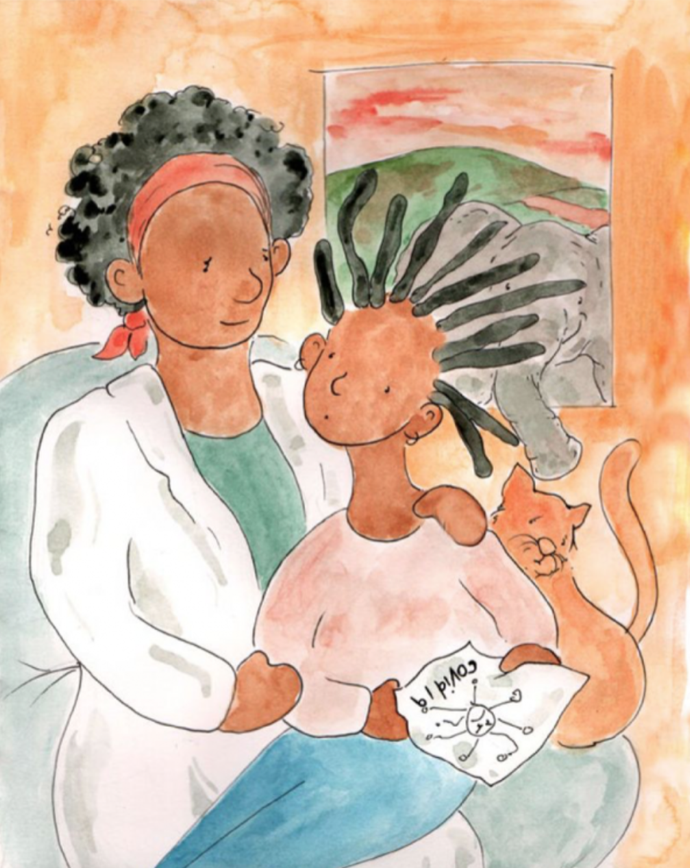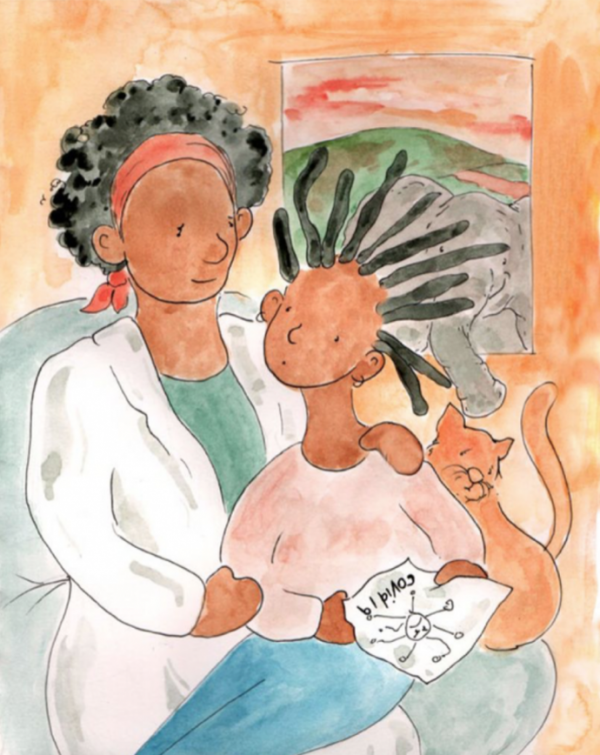KID REPORTERS’ NOTEBOOK
Kids Struggle With Mental Health


An increasing number of children are reporting feelings of anxiety, stress, and fear during the pandemic.
The coronavirus pandemic and the switch to remote learning have created mental-health challenges for kids around the world. In recent months, an increasing number of young people have reported feelings of anxiety, stress, and fear.
According to a recent study by NBC News and Challenge Success, 84% of students learning remotely “reported exhaustion, headaches, insomnia or other stress-related ailments, compared to 82% of students who were in the classroom on some days and 78% of students who were in the classroom full-time.”
Other studies conducted during the pandemic have had similar findings. What can kids do to help them cope with the changes they have experienced in the past year? I asked Joseph Rabinovitz, a child psychologist based in Boca Raton, Florida, for his advice. “It’s important to remember that feeling worried and stressed is a normal part of everyday life,” he said. “Feeling a certain degree of anxiety actually helps the body and mind prepare for the upcoming challenge.”
Many young people have been affected by the loss and sickness of family members and friends, as well as economic uncertainty. Rabinovitz encourages them to talk with parents, teachers, and other adults in their lives. “It’s important to share your feelings of sadness with your family and your close friends,” he said. “Don’t be afraid to ‘let it out.’ It’s very important not to lock any of your feelings inside since they will become more and more difficult to carry. Equally important, don’t be afraid to reach out to a friend who is sad. Don’t be afraid to talk about folks who have died. This can all feel very awkward, so just take a deep breath, and let people know how you feel.”

“It’s very important not to lock any of your feelings inside since they will become more and more difficult to carry,” says child psychologist Joseph Rabinovitz.
STICKING TO A SCHEDULE
It has been nearly a year since the pandemic was declared. Disruptions to daily life continue to take a toll on everyone, not just kids. But Rabinovitz says that our ability to adjust to big changes has helped.
“No matter your age, your life in many ways has been turned upside down,” he said. “From virtual school, to sports and activities being canceled, from wearing a mask and social distancing, to carrying hand sanitizer in your backpack, you have refused to quit, and you have persevered. Keep in mind that although the pandemic has been difficult to deal with, it’s not going to be here forever.”
One great way to cope with the changes, Rabinovitz said, is to establish a routine and be consistent. “Developing a routine and sticking with it is perhaps the best way to keep yourself feeling good both physically and mentally,” he said. “Now, more than ever, create a schedule for yourself, and stick with it. If you have a tendency to procrastinate, now is the time do dive straight ahead into your schoolwork or whatever challenge you’re facing.”
